THE AGRO CABLE //
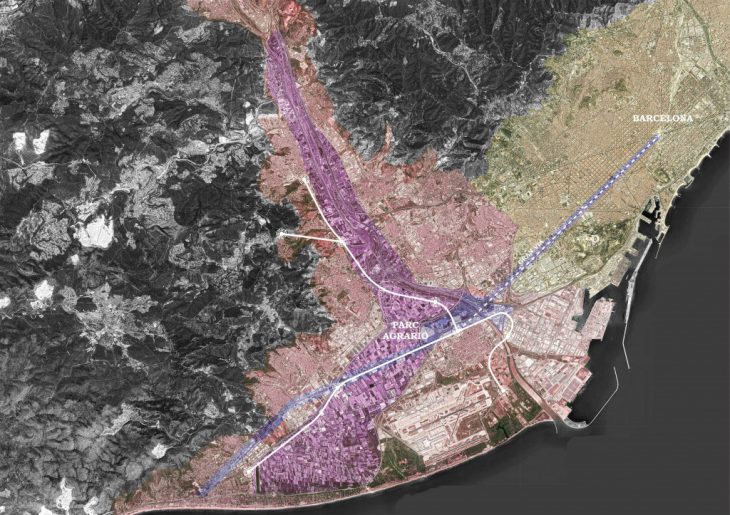
The first stage of this project involves a radical vision in the urban design and planning of the city of Barcelona. The main idea behind the approach is the linear connection between the farms and the city. The project wants to create an alternative and sustainable solution to transport food with a new electric aerial cabin lift system which drive food and passengers through renewable energy
produced by wind towers. The Agro-Cable is integrated with the Barcelona Metro system, train network and the xarxa viaria. In addition to transport across the park, the service advertises the concept of Food Highways and a “unique view of the Baix Llobregat”.
ANALYSIS //
The Agro-Cable is a research which focuses on the analysis, diagnosis and hypothesis about the Parc Agrari del Baix Llobregat. The Parc Agrari del Baix Llobregat is part of the Xarxa d’Espais Naturals protegits, promoted and managed by the Diputació de Barcelona.
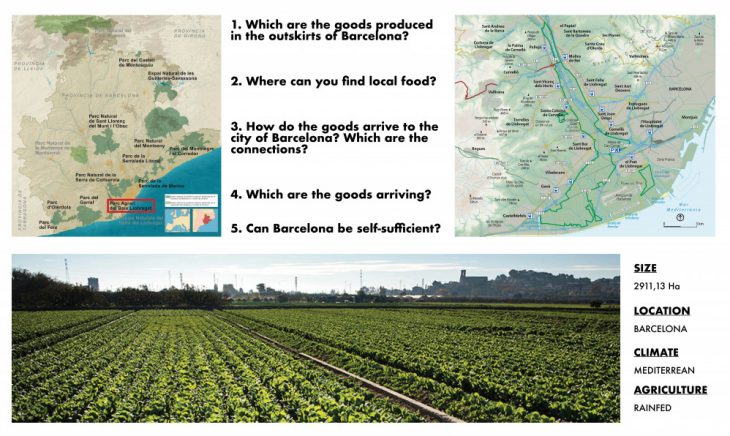
The park is surrounded by a very dense urban pattern and close to the airport and the Zona Franca of Barcelona where a big amount of the food produced is transported. Moreover, the park is close to the delta of the river Llobregat and the sea and has high speed winds coming from South-East and South West.
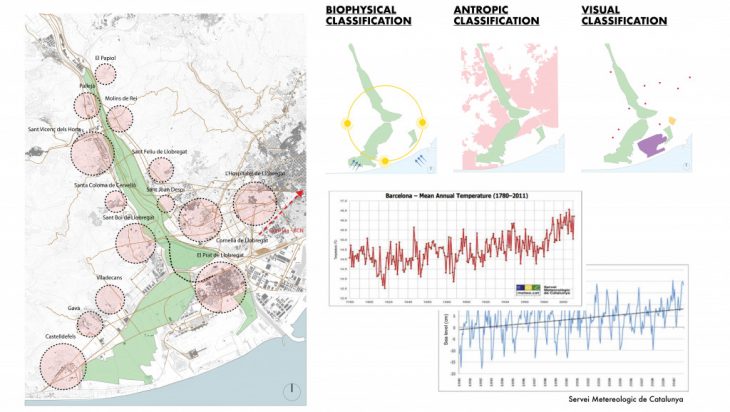
Which are the goods produced in the outskirts of Barcelona?
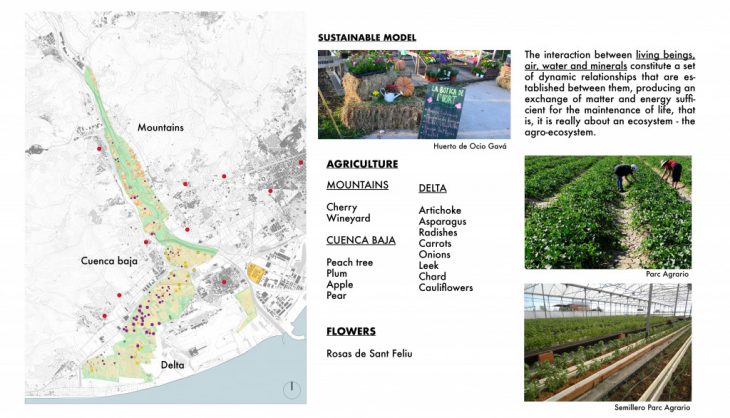
How do the goods arrive to the city of Barcelona?
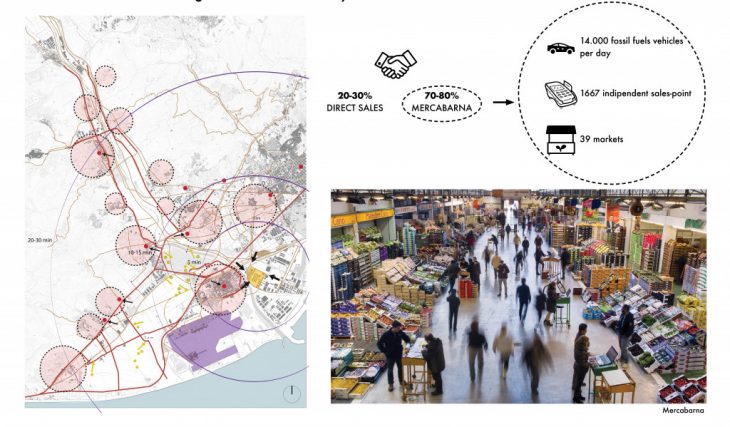
Mercabarna is the main food supplier of Barcelona. It is estimated that 20% of the fresh vegetables and fruits in Mercabarna are coming from the agro-park. Of this that 20-30% of the sales of the 1667 independent sales points in the 39 markets of Barcelona is direct sales and 70-80% is negotiated in Mercabarna. The latter is estimated that causes around 14000 fossil fuels vehicles per day transporting food from Mercabarna to the 39 markets of Barcelona. The map below shows the how the food is today transported estimating around 10-15 minutes car drive.
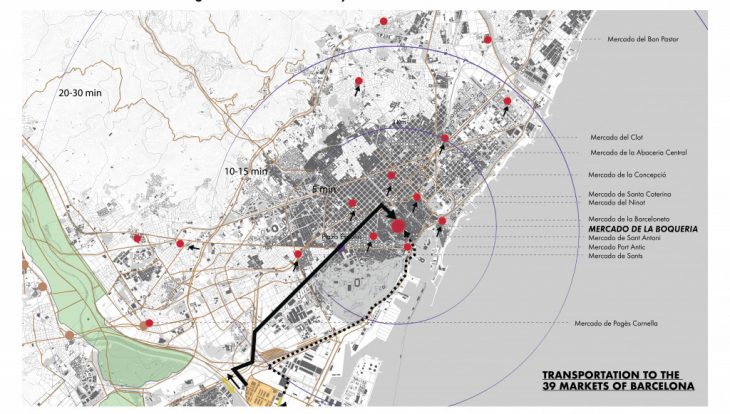
Can Barcelona be self-sufficient?
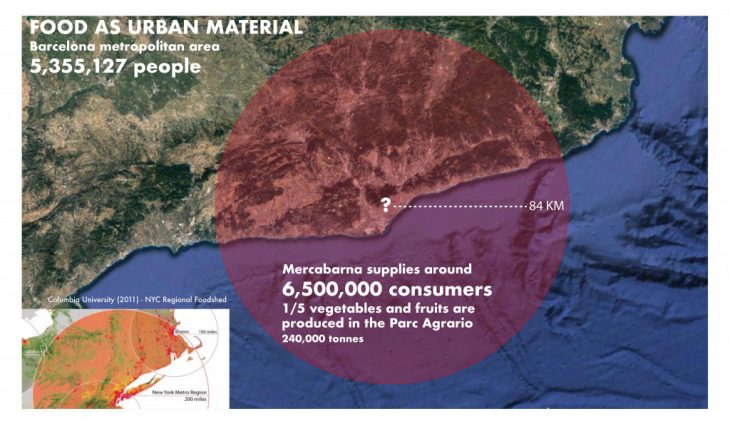
COMPARISON //
Comparing the Agro-park Baix Llobregat with the Agropolis Munich project, it is possible to notice similarities in density and location regards to the city center.
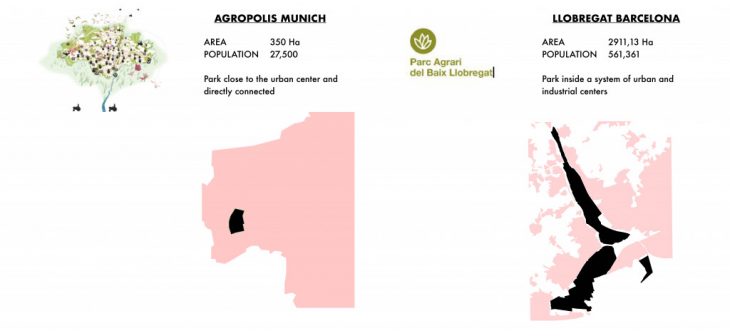
One important element to consider in the analysis of the Munich project is the tram connection between the neighborhood of Freiham and the Viktualien Market in the city center. This tram line foresees the transport of fresh food and different stations with fresh food markets. This allows more consciousness of the citizens about food production and harvesting. Moreover, it foresees a more sustainable way of food transportation.
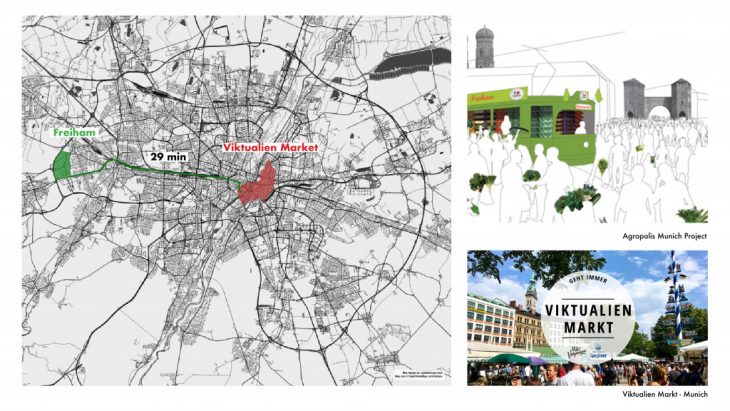
DIAGNOSIS //
Starting from the comparison between the Agropolis Project and the agro-ark Baix Llobregat, it is evident that the agro-park is a space that citizens always pass by but that never see and appreciate. In these maps it is possible to visualize the big impact of the infrastructures in the surroundings of the agro-park. Highways and railways are creating boundaries and sometimes also divide the park, creating obstacles for slow internal mobility and bio-corridors.
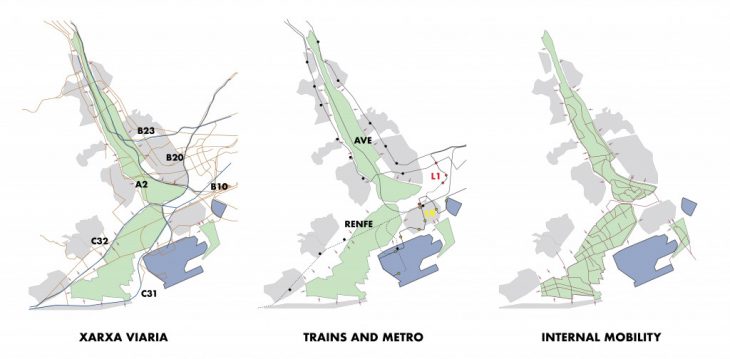
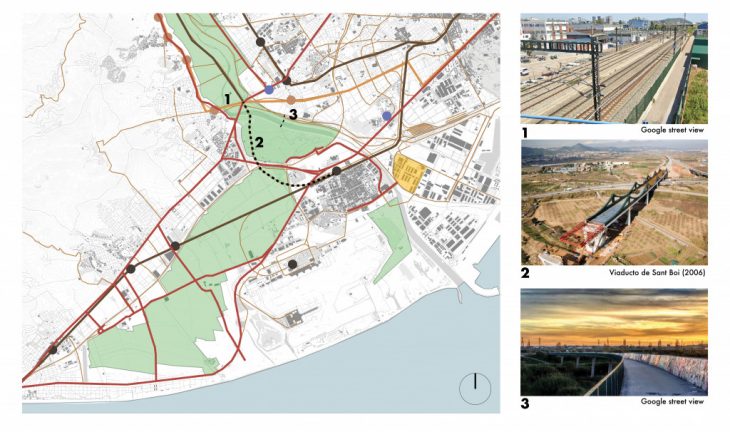
STRATEGIES //

The main idea behind the approach is the linear connection between the farms and the city. The project wants to create an alternative and sustainable solution to transport food with a new electric aerial cabin lift system which drive food and passengers through renewable energy
produced by wind towers.

PROPOSAL //
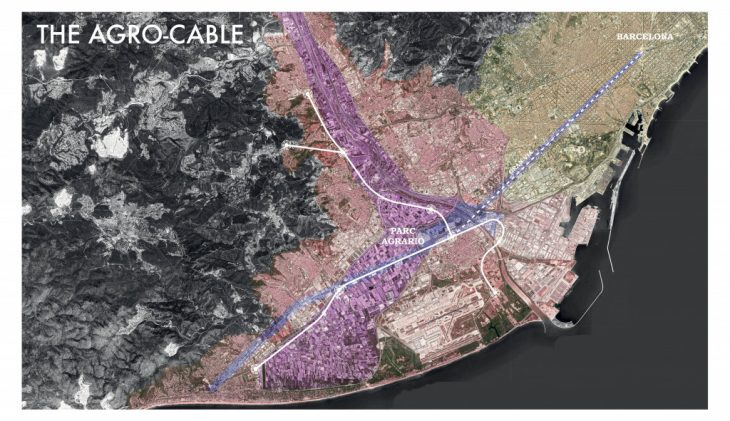
The new electric aerial cabin lift system takes inspiration especially by the Aerial tramway of Caracas and the Metrocable Project of Medellin which showed successful results as a mean of public transport.


The proposal foresees two different levels for passengers and food. When the food cabin is ready to go, it is connected to the passenger cabin.
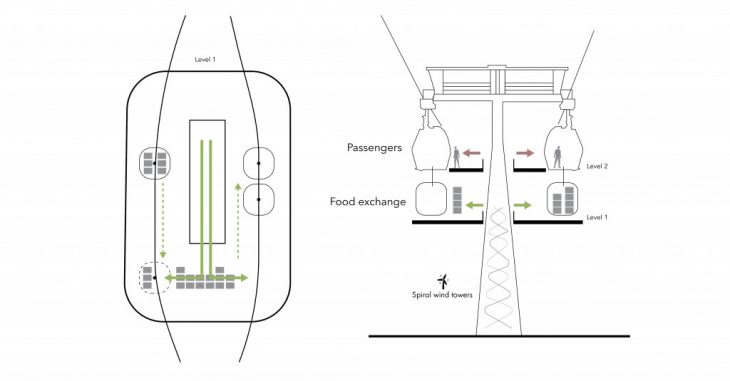
The proposal is composed by two lines, one dedicated more to food logistic and one to touristic mobility inside the park.
The Agro-Stations
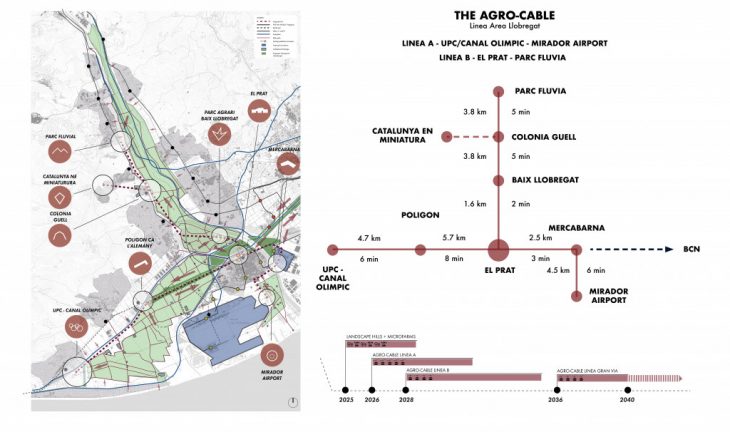
The food stations are carefully selected according to the high value of interchangeability with other means of transports (train, metro, cars, bikes).
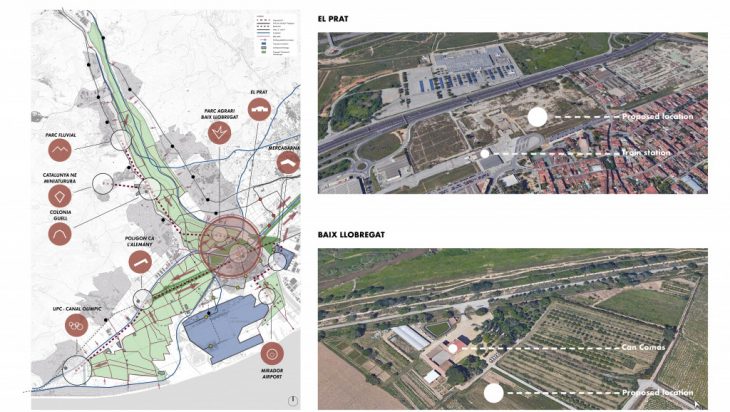
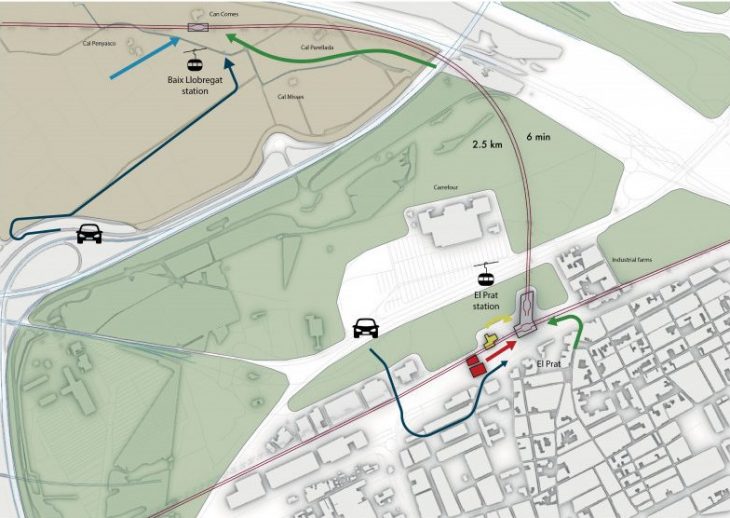

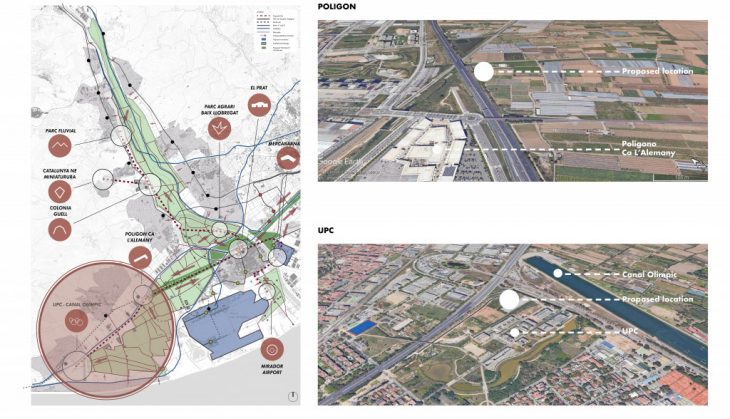
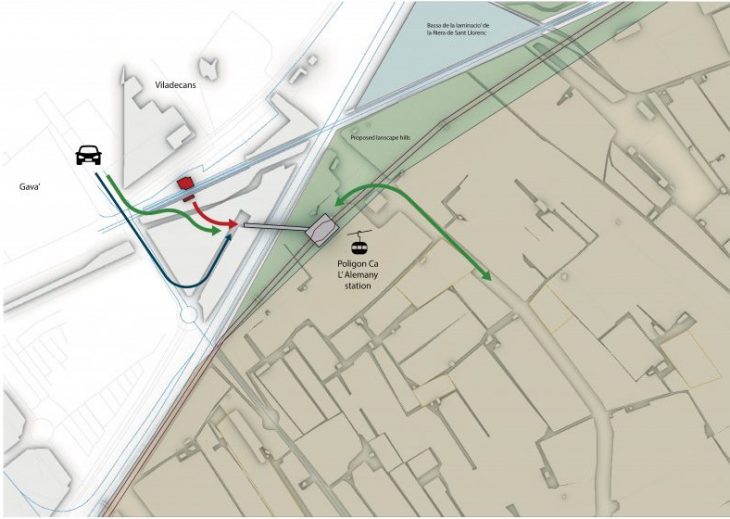
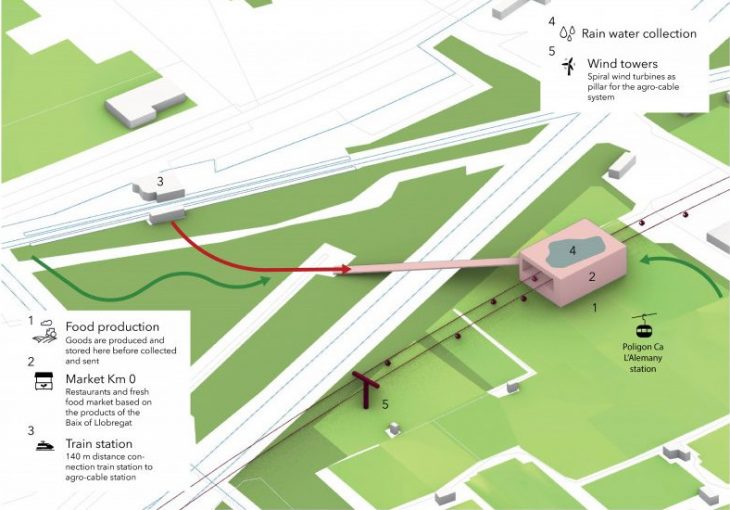
The Agro-Hub
The proposal wants to improve the existing farms and the realization of new micro farms in strategic locations. The new micro farm design is based on the one by the Agropolis Munich proposal and it hosts food storage as well as productive livestock, production, manufacturing and exhange.
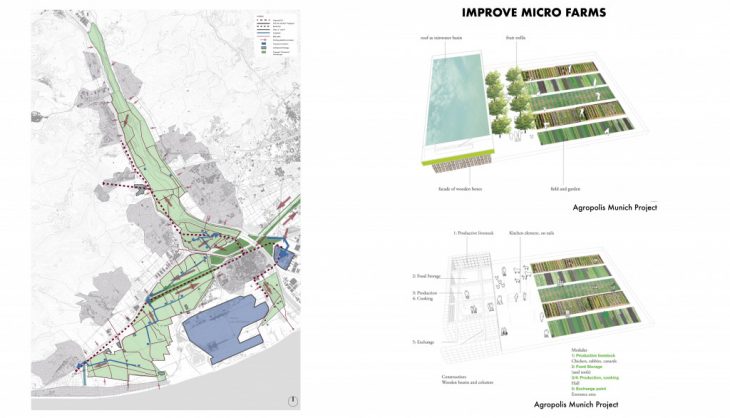
The food and the manufactured products could be transported by bike or electric vehicles through the existing bike paths to the new agro-cable stations.
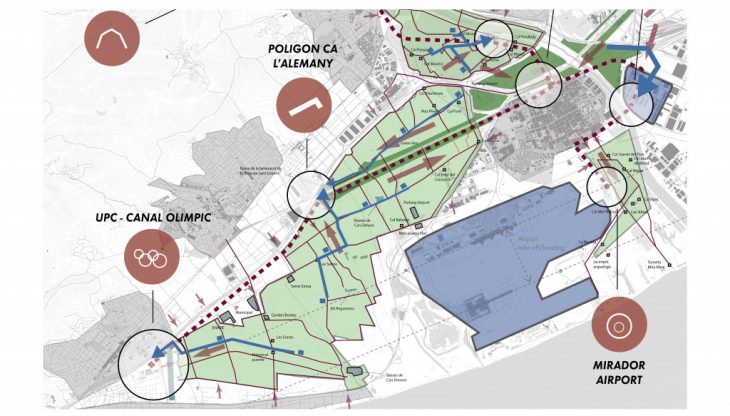
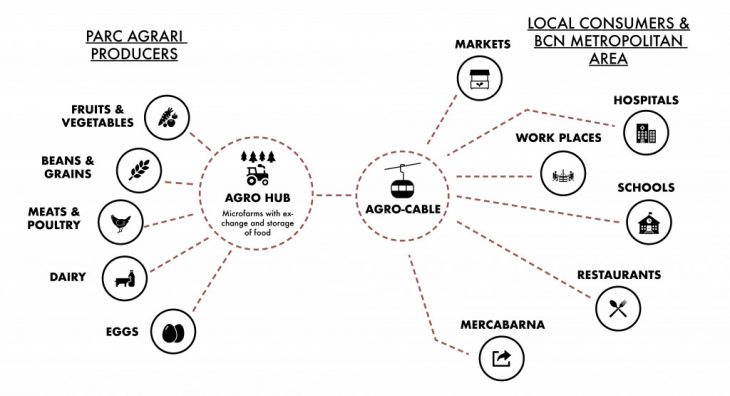
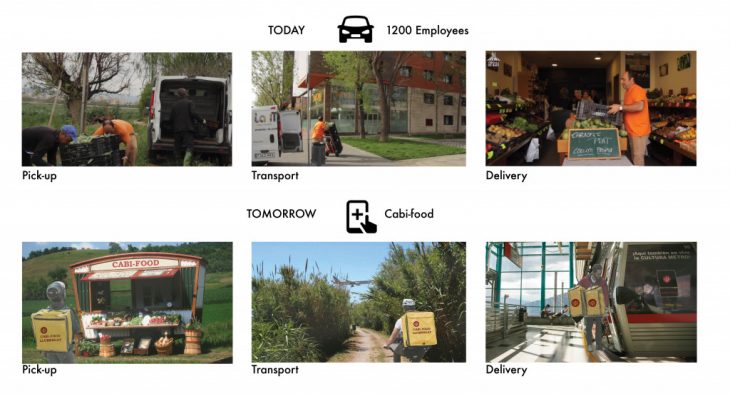
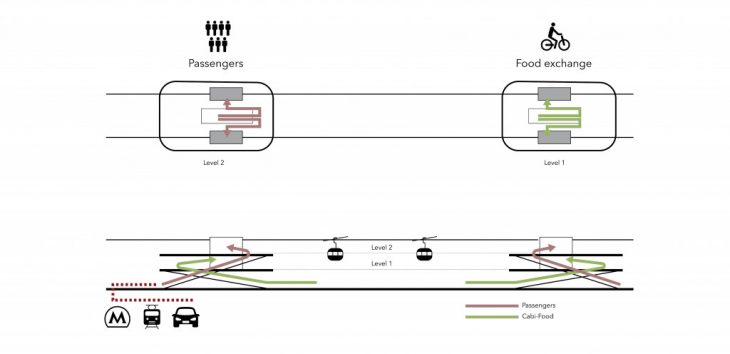
The Green Way
The proposal wants to preserve the areas around the river and the existing bio-corridors. Moreover, it foresees the creation of new green urban areas with new trees to prevent desertification of the areas around the river and the highways/railways. Those green spaces want to be natural hills in order to also create an acoustic barrier for the agro-park.
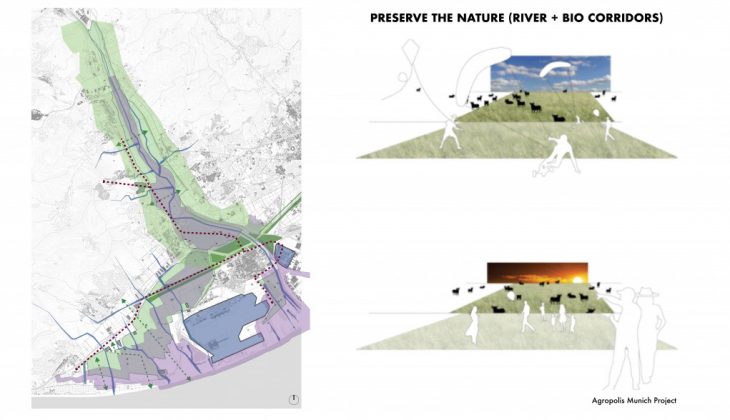
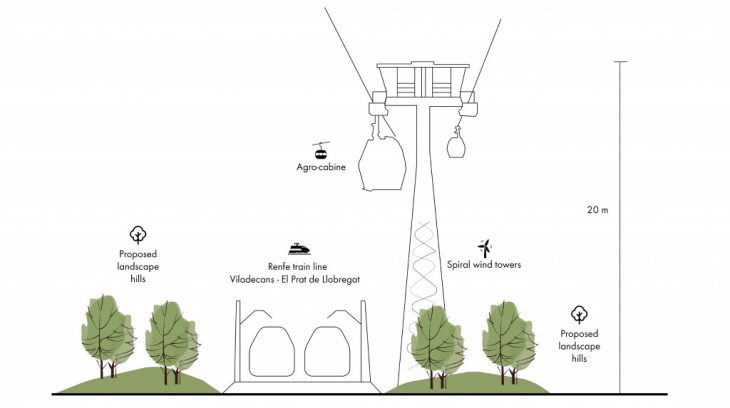
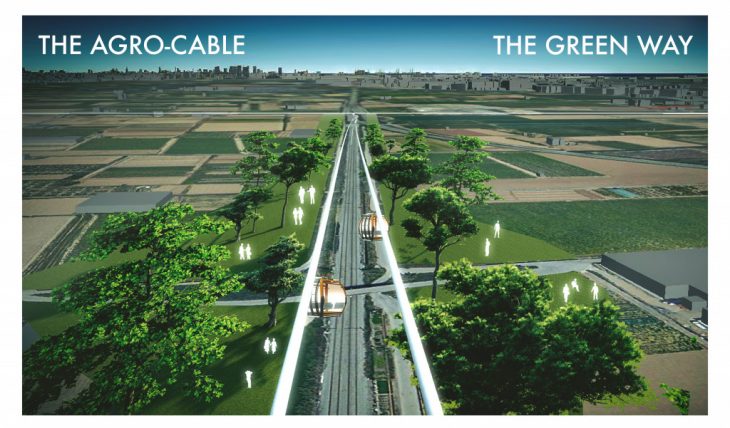
// VIDEO
// CREDITS
The Metro-Cable is a project of IAAC, Institute for Advanced Architecture of Catalonia developed in the Master of Advanced Architecture 2020/21 by Student: Tullio Polisi and Faculty: Willy Müller & Manuel Gausa and Faculty Assistant: Camila Álvarez
